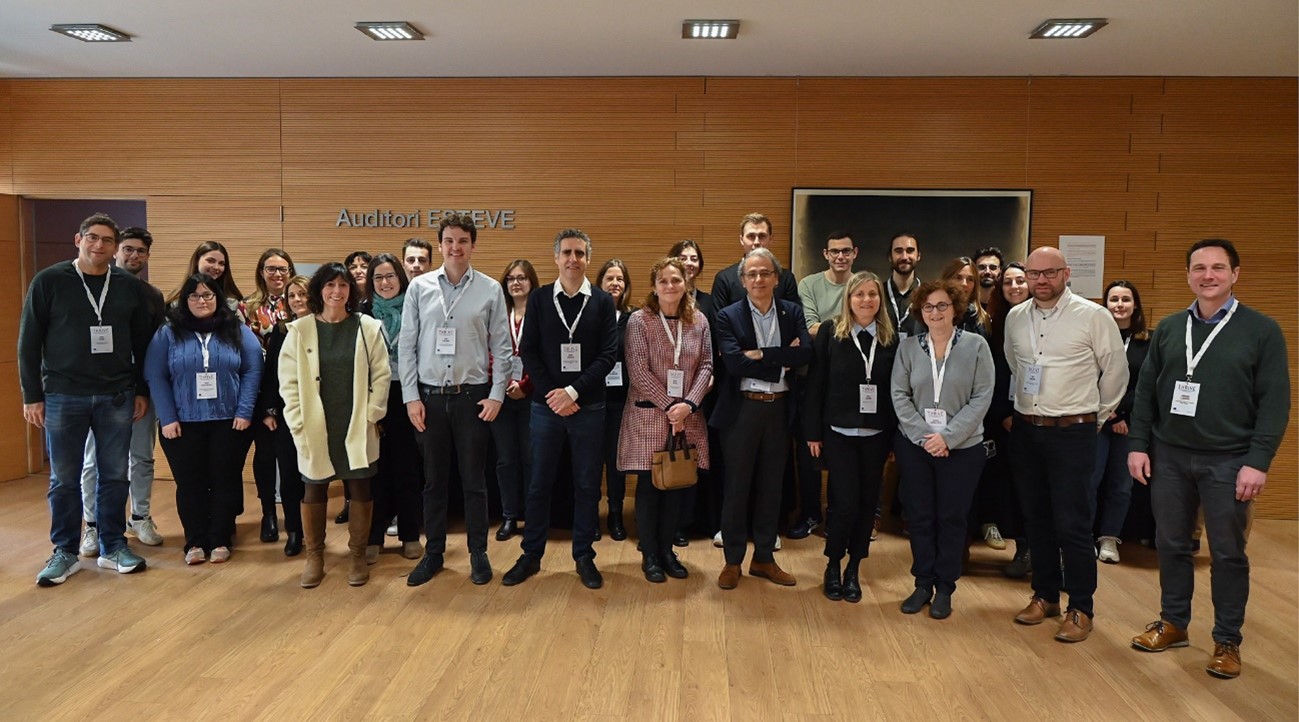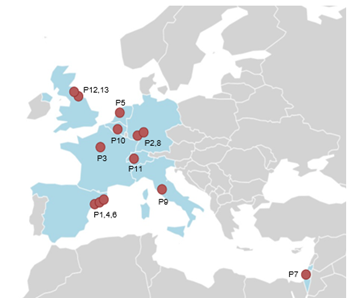The European Union launches the THRIVE project to improve the prognosis of children and adults with liver cancer

Members and participants of the kick-off meeting of the THRIVE project.
The European Union's project called THRIVE (Tumour host interactions in liver cancer for childhood and adults) held its kick-off meeting on 12 January 2024 in Barcelona. Thirty-five people attended the meeting, which took place in the Esteve Auditorium of the Esther Koplowitz Centre, where IDIBAPS' headquarters in located. The project is coordinated by Josep M. Llovet, the head of the IDIBAPS group Translational Research in Hepatic Oncology, a professor of Medicine at the University of Barcelona (UB) and an ICREA professor. The Germans Trias i Pujol Research Institute (IGTP) collaborates as a partner through the Childhood Liver Oncology Group (c-LOG), led by Carolina Armengol, who brings over 20 years of expertise in childhood liver cancer translational research.
Liver cancer is a major health problem, with 1 million cases diagnosed each year worldwide (60,000 cases per year in Europe). It is the third-leading cause of cancer-related mortality in the world. Hepatocellular carcinoma (HCC) in adults and hepatoblastoma (HB) in children are considered little-known cancers and have a poor prognosis if detected late.
THRIVE is the liver cancer project best funded by the European Union. It has a budget of €12 million and 13 organisations from eight European countries are involved in it. It is funded as part of the European Commission's 'Mission on Cancer', which aims to improve the lives of over three million people by 2030.
Carolina Armengol acknowledges the importance of the collaboration, stating, 'We are pleased to be part of this influential consortium, and I am confident that the studies conducted in the project will lead to a significant advancement in the clinical management not only for adult liver cancer but also for childhood liver cancer, a rare disease.'
The ultimate goal of THRIVE is to improve the survival rates of both paediatric and adult liver cancer patients by understanding at-risk populations and tumour-host interactions and developing biomarkers for current therapies, as well as affordable new treatments to overcome drug resistance. Around 6,500 liver cancer cell samples (hepatocellular carcinoma and hepatoblastoma) will be used for this purpose, analysed with the most advanced technologies such as single-cell sequencing, spatial transcriptomics, microbiome research, artificial intelligence and next-generation sequencing, as well as patient-derived organoids and xeno-implants.

Geographical distribution of the members of THRIVE. Credit: IDIBAPS.
Among other things, the THRIVE project aims to:
- Define the molecular characteristics of predisposition to cancer and of populations at risk of developing liver cancer, particularly of patients associated with metabolic syndrome.
- Identify molecular and AI response markers for immunotherapies.
- Develop a complete blueprint of liver cancer and the elements involved.
- Implement a pre-clinical drug testing platform for the discovery of affordable new therapies with a high impact and level of social acceptance.
- Maximise the impact on European society by integrating the humanities and the social sciences and provide accessible and reusable data and tools to support other EU initiatives.
In summary, the THRIVE project strives to better understand the main liver cancers in the adult and paediatric population so they can be treated more effectively.
"Funded by the European Union. Views and opinions expressed are however those of the author(s) only and do not necessarily reflect those of the European Union. Neither the European Union nor the granting authority can be held responsible for them."

